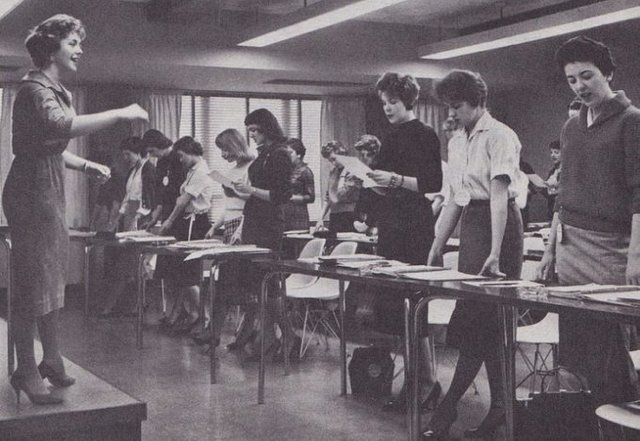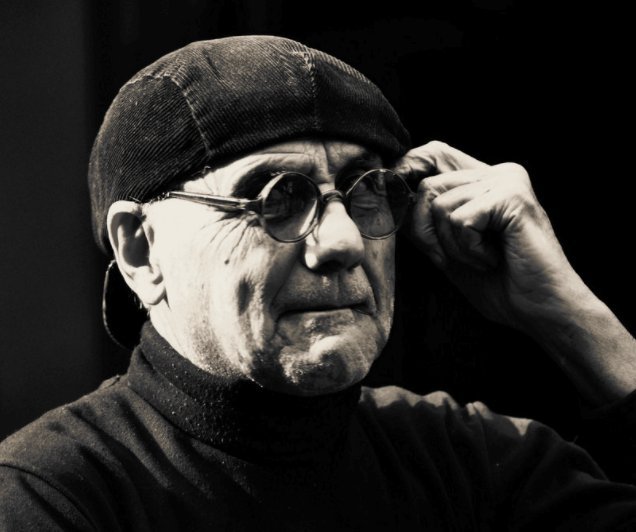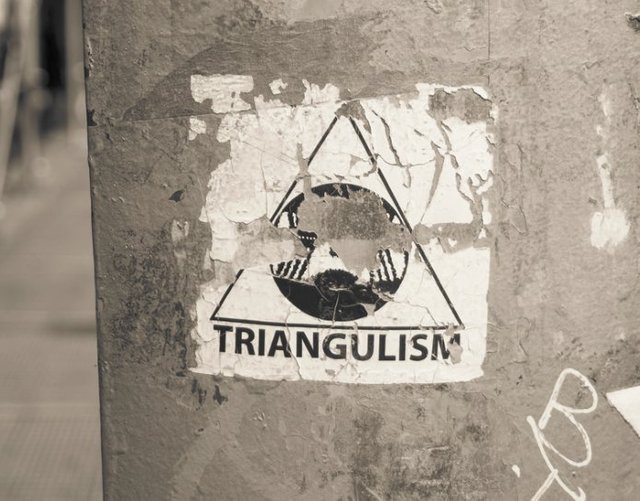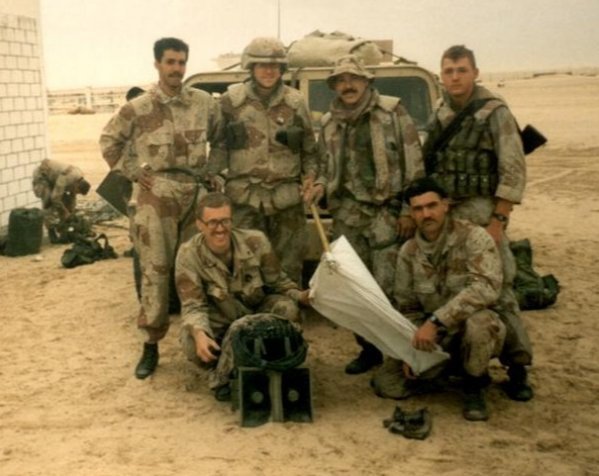
Noam Chomsky made the important distinction between two classes of intellectuals in contemporary society. In his seminal work,
Who Rules The World, the
value-oriented intellectuals refuse to line up in support of the State.
Instead, they
devote themselves to the derogation of leadership, the challenging of authority and confront the institutions responsible for the indoctrination of the young.


This group operates on the fringes of society, often marginalized by the mainstream media as well as within Academic hierarchy. In addition, general socialization with the masses is awkward and limited. In contrast,
technocratic and policy-oriented intellectuals were
those responsible and serious thinkers who devote themselves to the constructive work of shaping policy within established institutions, and to ensuring that indoctrination of the young proceeds on course. The latter group is highly organized within the collective establishment of what constitutes higher education. Based on my personal experience, while attending colleges and Universities in New York, Florida, Texas, the Netherlands and Malmö, Sweden - I can attest to the predominance of these
apparatchiks and commissars.
The Experiment - Part I
I enrolled in a graduate course in
Information Operations, part of a unique program in the Defense & Strategic Studies. For one assignment, I decided to use a historical case based upon domestic application with the TA,
target audience representing the collective mass of US citizens, especially those identified as active within the political arena. This was inappropriate for the technocratic and policy-oriented intellectuals, who clearly dominate the social and political sciences, especially those who have been properly regimented through previous military reinforcement methods. As such, my choice for a TA
should have reflected status quo narratives. Needless to say all of my peers decided to utilize the usual suspects: Russia, China, DPRK or Iran, perpetuating the mainstream
approved rhetoric.
Regardless, I decided to experiment with the assignment and the subsequent reaction from my instructor, a retired Air Force and Director of Research and Publication for Air Command and Staff College with an appointment as a professor of national and international security. The objective of the assignment was to identify a TA,
target audience, either war or peacetime, an agency and appropriate measures, methods and policies necessary to achieve an effective PSYOPS or IO campaign, which aligned with US national strategic aims. Hence, the following represents a revised version of what I submitted. In all instances I utilized required reading materials as source information. However, I relied heavily on the work of Bernays, Le Bon and Ellul which provided the basis for establishing the operation.
Submission
I have decided to revisit the topic presented in the previous week, concerning the
Vietnam Syndrome and the subsequent reaction by the political establishment in regards to the proliferation of a domestic counter-culture in the US.
 Know Your Groceries
Know Your Groceries
This alternative culture, originating from beatnik and bohemian roots helped cultivate emerging civil and labor rights movements, anti-war marches, protests and sit-ins, occurring through the turbulent 60's and 70's in the US. Many events ended in violence (riots) as clashes between State and private citizens intensified over a diversity of social and political issues.
The Kent State University massacre of several student demonstrators as well as the racially motivated Watt's rebellion in Los Angeles are prime examples. It is important to note that both Bernays and Ellul recognized the necessity of propaganda and largely, IO, within a functioning democracy. Bernays implored intelligent men to acknowledge:
Propaganda is the modern instrument by which they can fight for productive ends and help to bring order out of chaos
(Bernays, 1928, p. 159).
This would correlate with Ellul (1973) concerning covert propaganda applications within a domestic sphere as being more effective in
pushing one's supporters in a certain direction without their being aware of it (p. 16). One premise being knowledge obtained through effective (TAA) target audience analysis. As Paul (2008) notes,
Knowing your audience is absolutely critical if you want to influence attitudes or behavior (p. 62). This applies equally and without regard to either foreign and domestic, adversary or ally and irrespective of ideology. In this regard, Ellul's (1973) notion of collective sociological presuppositions within a certain society or group act as the basis for
what keeps us in harmony with our environment (p. 39). In addition, Le Bon recognized that Ellul's presuppositions – those collective beliefs,
by which one unconsciously judges events and things without questioning them is indicative of crowd irrationality.
The opinions and beliefs of crowds are specially propagated by contagion, but never by reasoning
(Le Bon 2002, p 80).
As such, in the aftermath of decades of US domestic counter-cultural dissonance, an effective call to action, advocated by prolific members of society in an effort to curtail an
excess of democracy.
Considering the Smith-Mundt Act
has been broadly interpreted as prohibiting the U.S. government (including DoD) from targeting Americans with influence efforts (Paul 2008, p. 69) another legally, albeit ethically questionable method was utilized. Two documents representing the partisan divide provide the doctrinal guidance for the restoration of what one of the principle authors, Harvard political scientist and academic, Samuel P. Huntington (1975) described as
a greater degree of moderation in democracy.
The Trilateral Commission report,
The Crisis of Democracy, focused on the governability of democracies. In the report, the (TA) target audience represents dissident elements operating within US society. In addition, the emerging role of the media as an antagonistic medium for enabling the previously passive or unorganized groups in the population. The report further identifies, the intellectuals and related groups who assert their disgust with the corruption, materialism, and inefficiency of democracy and with the subservience of democratic government to
monopoly capitalism.
It concludes with critical steps required to restore the prestige and authority of central government institutions. Specifically, the press must be reined, including regulation by the government if necessary. Higher education should reinforce job expectations in relation to economic and political goals without invoking a challenge to capitalist institutions. The central premise being, a proper balance between power and liberty, authority and democracy, government and society.
 Trilateral Symbolism
Trilateral Symbolism
It is important to note that the (TLC) Trilateral Commission and the report represents the work of three respected academics:
Michel Crozier,
Samuel Huntington, and
Joji Watanuki.
Collectively they epitomize the ideology of the
liberal wing of the state capitalist ruling elite.
The Powell Memorandum written in 1971 by Lewis Powell, a corporate lawyer and member of the boards of eleven corporations urged the director of the U.S. Chamber of Commerce to respond appropriately to what Powell identified as an American economic system under broad attack. Powell was not concerned with sporadic or isolated attacks - but what he perceived as a movement gaining in both momentum and converts. He considered the assault on the enterprise system broadly based and consistently pursued. In essence, a form of domestic terrorism from the perspective of the corporate elite. The source being the Communists, New Leftists and other revolutionaries who would destroy the entire system, both political and economic. As a result, Powell lambasted what he called the apathy of business class -
upon its philosophy, upon its right to continue to manage its own affairs, and indeed upon its integrity. He advocated for primacy and responsibility by the corporate management. In addition, careful long-range planning and implementation by the US Chamber of Commerce as an organizing element.
Like the TLC authors, the University campus and role of intellectuals - especially in the social sciences requires consistent scrutiny and oversight. As a result, Powell advocated appointment of corporate leaning scholars aided by the Chamber of Commerce in conjunction with evaluation of textbooks within the fields of economics, politics and social sciences. Note that Ellul (1973) classified American propaganda based on the progressive teaching methods of John Dewey. Focus on the public, an equally problematic element which Powell suggested short-term operations using all facets of mass media. Television, radio and the press should be employed to challenge and refute unfair attacks, as well as to present the affirmative case through these media. The memorandum was dated August 23, 1971, two months prior to Powell’s nomination by President Nixon to the U.S. Supreme Court. The memo and the intended audience represent the interests of the corporate elite or
right wing constituency within the US partisan divide.
It is important to note that irrespective of partisan loyalties, both the
Crisis of Democracy and the
Powell Memorandum express the same concern over resurgent public interest in the political arena. Apathy and acquiescence was preferred as opposed to
excess democracy. As such, effective utilization of IO elements was advocated including, private sector adaptations of PA (Public Affairs), PSYOPS (Psychological Operations) and EW (Electronic Warfare) using dissemination of information which Paul (2008) identified as functioning within an operational level, involving
influence efforts aimed at general audiences and aimed at attitude change as a prelude to behavior change (p. 60).
 PSYOP team prepares for expanded mission in Africa
PSYOP team prepares for expanded mission in Africa
This correlates with Boyd (2011) who stated,
MISO (Military Information Support Operations, is communications to influence human attitudes and behavior (p. 25). This is irrespective of TA identification since the human collective elements are consistent for PSYOP, OPSEC or any facet of IO and strategic communications. In addition, such operations are intensified by collective social organization factors which Le Bon (2002) correctly identified. Especially relevant is the potentially diminishing lines between internal and external or domestic and foreign applications. As Cantwell (2005) noted,
The distinction between information released to the public media and to the enemy is disappearing (p 6).
Hence,
both documents highlight partisan unity in regards to the economic and political responsibility of the elite in maintaining class division by instilling social and political values in line with avoidance of
excess democracy. As a result, both documents represent a clear historical example of a coordinated
secular response in an effort to influence, disrupt or effect the behavior of a collective mass of humans, which is a central core-defining element of Information Operations.
The Response
 Interesting XXXXXXX.
This is consistent with Ellul’s assessment, but it would also create a firestorm in the implementation.
It’s unlikely a government could weather the effects, even if it did benefit it.
Further, it has the potential to establish an over watch that could then be applied by whatever party held power to punish its opponents, much like what has increasingly been the case with police, taxation, and distribution functions at the federal level.
Interesting XXXXXXX.
This is consistent with Ellul’s assessment, but it would also create a firestorm in the implementation.
It’s unlikely a government could weather the effects, even if it did benefit it.
Further, it has the potential to establish an over watch that could then be applied by whatever party held power to punish its opponents, much like what has increasingly been the case with police, taxation, and distribution functions at the federal level.
The brevity of this response in addition to the dismissive tone are indicative of
technocratic and policy-oriented intellectuals who seek to perpetuate mainstream status quo narratives. In addition, the lack of acknowledgement in spite of the historical evidence is more revealing of the level of institutional indoctrination within the US.
I will follow up with a similar experience in relation to the Swedish higher education system.
References
Bernays, E., & Miller, M. (2005).
Propaganda (1st ed.). Brooklyn, N.Y.: IG Publishing.
Boyd, C. (2011).
The Future of MISO. Special Warfare, Jan - Feb, Vol. 24, No. 1.
Cantwell, P. (2005).
Challenging Mix: Information Operations and Public Affairs
Ellul, J., Kellen, K., & Lerner, J. (1973).
Propaganda: The formation of men's attitudes. New York: Vintage Books.
Le Bon, G. (2002).
The Crowd (1st ed.). Mineola, NY: Dover Publications.
Paul, C. (2008).
Information Operations: Doctrine and Practice. Westport: Praeger Publishers.



 Know Your Groceries
Know Your Groceries
 Trilateral Symbolism
Trilateral Symbolism
 PSYOP team prepares for expanded mission in Africa
PSYOP team prepares for expanded mission in Africa

Well written, researched, and interesting work @fugetaboutit ! Although this is not my area of interest per say, I love the thoughts and debates that can incite! The response you got is certainly disheartening, but I can tell you've got the passion to persue and make change in this world! Well done!
Downvoting a post can decrease pending rewards and make it less visible. Common reasons:
Submit
Thank you ljkenward. I appreciate the compliment and well wishes in my journey through academia. I intend to persevere and actually enjoy discovering the many dysfunctional elements within institutional learning.
Downvoting a post can decrease pending rewards and make it less visible. Common reasons:
Submit
A well written, and researched piece. I have a keen interest in this topic and believe wholeheartedly that Government seeks not only to govern but to control both the thoughts and therefore actions of the public. In the light of recent, and current political events in my home country (England) I believe that we are in a phase of great change. Whether that change turns out to be for the good is the big question.........
Thanks for sharing. Upvoted and followed
Downvoting a post can decrease pending rewards and make it less visible. Common reasons:
Submit
handsolo, I totally agree. It is a systemic problem in Western Societies. If you dig enough, there is much scholarship and source materials. Chomsky and John Taylor Gatto are good sources at exposing this kind of academic dishonesty. Thank you for reading and voting.
Downvoting a post can decrease pending rewards and make it less visible. Common reasons:
Submit
This is great. Enjoyed reading this!
The mainstream approved rhetoric hates freedom of speech.
Downvoting a post can decrease pending rewards and make it less visible. Common reasons:
Submit